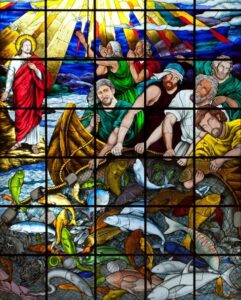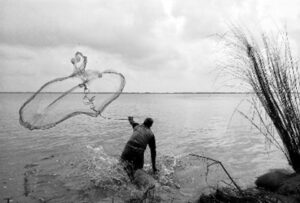Have you ever been in a situation where you thought, nothing seems to be working? Well, you are not alone. As a Bahamian Anglican priest, this is the thought that comes to mind regarding discipleship and discipleship within the Anglican Diocese of the Bahamas and the Turks and Caicos Islands and by extension the Christian communities in the Bahamas at large. We seem to be comfortable with the usual attendance and not worried about the unchurched, unsaved and uninterested individuals in our various communities and if we ignore this any further it would be to our peril. This project was birthed out of the zeal and passion to revive and rejuvenate in every locality a living center of Christian faith, witness and fellowship being true to the Great Commission in Matthew 28:16 – 20, “Therefore go and make disciples of all nations…”. However, first we must understand who is a disciple, what does discipleship entail and who does it look in our particular culture and context.
Many Churches have engaged in discipleship and discipleship-making with success and others tend to struggle with how to conceptualize and contextualize it in a way that speaks directly to the specific realities people are facing and the culture in which they live. Though excellent ideas come from the United Kingdom and Europe, there is a way we can take those ideas and make them our own.
The Anglican Church in the Bahamas has made efforts to arouse the awareness of discipleship and discipleship-making since 2018. Bahamian Anglicans were encouraged to regard themselves as individually sharing responsibility for the corporate life and witness the Church in the places where they live. This is a great way forward, but it is contextually very unspecific. Engaging in discipleship cannot be viewed as another diocesan project or program but rather a lifelong, whole-life reorientation that has implications for self-identity, belonging within the community, culture and ethos, and daily behavior.
SO, WHAT’S HAPPENING?
Within the Anglican Church in The Bahamas, there seems to be a weak definition and demonstration of discipleship. Frankly, people do not seem interested and are not engaged in discipleship or discipleship-making. This may be due to the lack of teaching and involvement in Church life but most of all, the Christian ethos is succumbing to a brooding culture of individualism and consumerism in the self-proclaimed “Christian nation.” Furthermore, the current situation is that many Anglican Bahamians within the local parish are not rising up as disciples or even leading discipleship-making initiatives within the church or community. The people within the Church need to be mobilized and equipped for a much greater purpose: to make disciples.
DEFINE DISCIPLESHIP?
As a Christian, I have always thought discipleship simply meant, following Christ. As I matured, it was apparent that it entailed so much more. Discipleship entails putting faith into action and assisting other believers in doing so. The Right Reverend Rachel Treweek, the Anglican Bishop of the Diocese of Gloucester, noted, “this [discipleship] means that the primary places where we will express and live out our calling to be disciples are not in church but the world.”[1] Discipleship is about mentoring and encouraging believers so that their faith, culture, and circumstance have an impact on the community and world around them. So, let it make sense. Well, a working definition is that discipleship is an individual committed to the process of being nurtured in the Way, Will, and Word of Jesus Christ while discovering how to translate that life in his or her culture and context to produce disciples, not him/herself.
“…the followers of the earthly Jesus have to make others into what they themselves are: disciples.”[2] – David Jacobus Bosch
HOW SHOULD IT LOOK?
We are looking for practical ways for Bahamian Anglicans to embrace discipleship but not forget who they are as a people. Bahamian culture has had little influence on the Church and Christian witness and Bahamians can foster their own way of relating the Gospel without distorting the truth of its message. Jesus and his disciples were a part of their culture. The teachings and practicality were not beyond who they were as a people but spoke to their ethos, and ideals, traditions. An idea, for example, conceptualizing a Bahamian way of discipleship is through a local festival held on every island called, Regatta. This can be an opportunity for discipleship and discipleship-making. Possibly hosting a Regatta Sunday where fisherfolk share the testimony, sing songs, and recount tails the goodness of God on the sea from throughout the year. It can also be a time of fellowship and togetherness, where communities share music, dance, food, and historical narration which are all valuable elements in the discipleship process. This idea springs into life with the words of Aubrey Malphurs, “Culture profoundly shapes and influences all of our lives and beliefs, and most of us are not aware of it. We use culture to order our life, interpret our experiences, and evaluate behavior.”[3]
WHAT’S THE PLAN?
Currently, I am the Rector of a multi-point (several congregations) ethnically diverse parish on an island in The Bahamas named, Long Island and the plan is to develop a strategy for a compelling and contextual gospel-centered model of discipleship by looking through the lens of parish ministry. Even in constructing this, I do not want to create another program but a system that can be managed and supported by Church and the community. Of course, there is so much more than will need to be developed but starting with what can be considered basic realities to assist in cultivating a culture of discipleship and discipleship-making. The three steps are:
- REPENTANCE – the language of repentance needs to embrace new love and relationship.
- BELIEVING IN CHRIST – Affirmation of belief and trust in Jesus Christ and move toward greater commitment.
- TRAIN, MODEL, AND TEACH – Participation in the life of the Church, finding your gift (what you can do in the Church), development of a 12-week discipleship program and small groups to facilitate outreach but more importantly fellowship and the spiritual growth of Christians.
SUGGESTED READINGS
Curry, Michael B. Crazy Christians: A Call to Follow Jesus. Harrisburg: Morehouse Pub., 2013.
Moon, W. and Moreau, A. Intercultural Discipleship (Encountering Mission). Grand Rapids: Baker Academic., 2017.
Wright, N. T. Following Jesus: Biblical Reflections on Discipleship. Grand Rapids, Mich: Eerdmans, 2014.
[1]“Discipleship: Becoming Confident Disciples”. Diocese Of Gloucester, accessed March 20, 2022. https://www.gloucester.anglican.org/parish-resources/discipleship/.
[2] David J. Bosch. Transforming Mission: Paradigm Shifts in Theology of Mission (Maryknoll, NY. Orbis Books, 1991). 73-74
[3] Aubrey Malphurs. “The Dynamics Of Church Leadership” (Grand Rapids, Mich: Baker Books. 1999) 137.


Thank you, Kari, for this concise and descriptive account of your project! May it bless the people of your parish and the rest of the Bahamas.